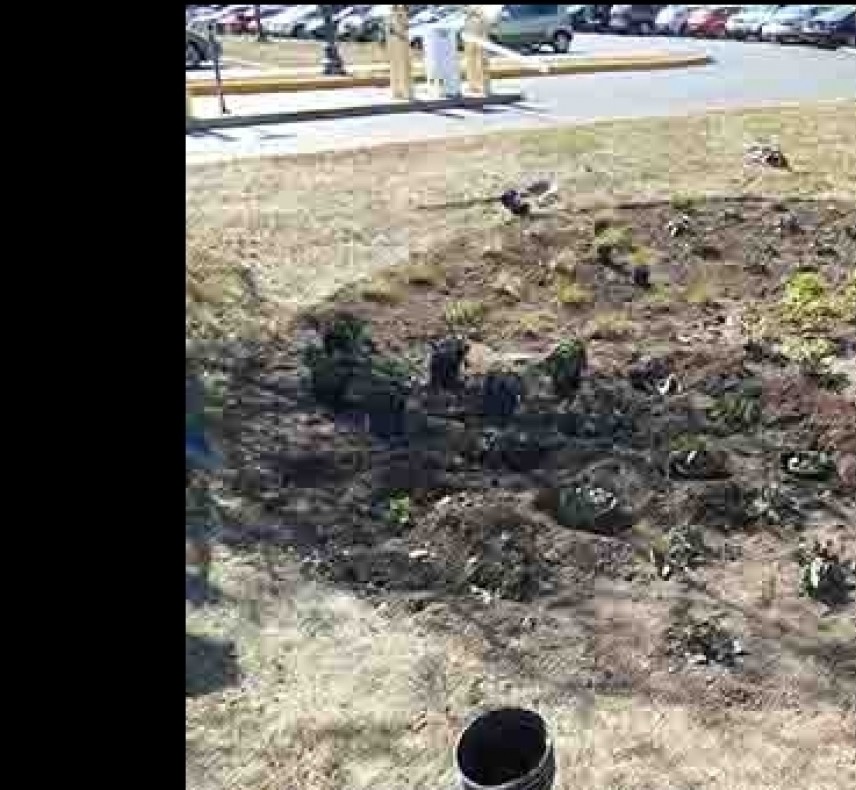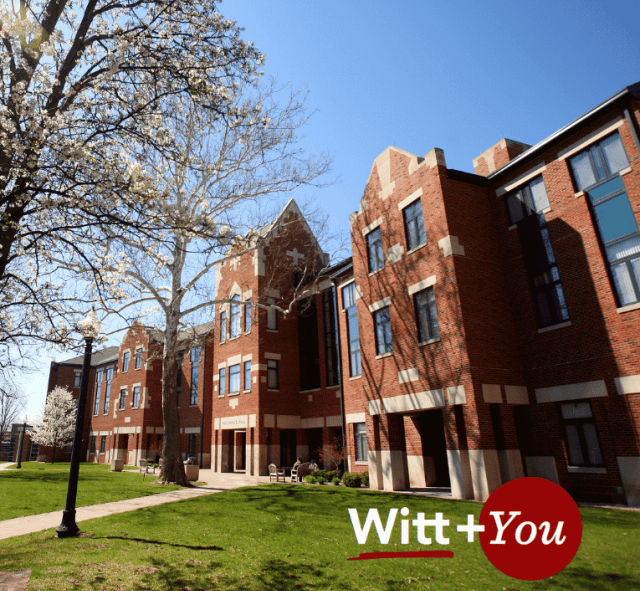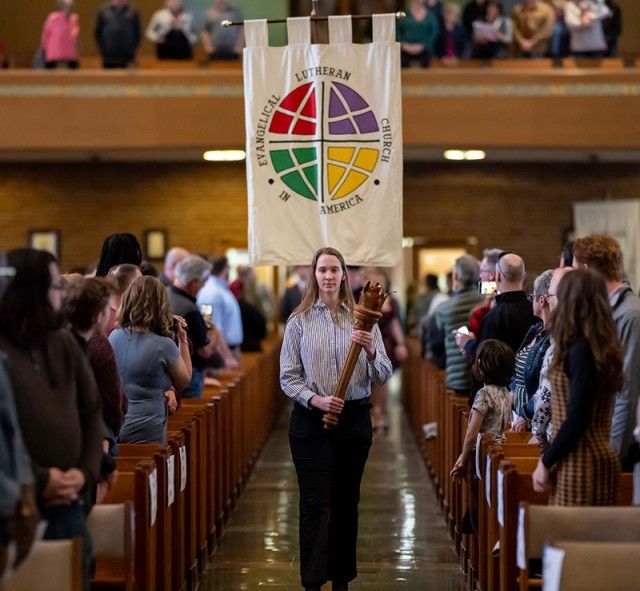Springfield, Ohio – Adding to the beauty of the Wittenberg University campus is the creation of two rain gardens, a project that started last week.
One is located adjacent to Tower Hall on the corner of Woodlawn and Bill Edwards Drive and the other 100 yards to the west in a parking island between two parking lots near the residential dormitories. The project will provide water retention to the Tower/Firestine parking lot, reduce stormwater runoff, improve water quality and allow plenty of learning opportunities for students. These beautiful gardens will be approximately 25’ by 16’ in size and will help ease stormwater back into the ground and provide green space to attract wildlife.
The rain gardens will feature three different types of native plantings, including Black-Eyed Susans, Joe Pye and Prairie Grass, plants that aid in soaking up water.
“Springfield is served by a combined sewer system, which overflows untreated sewage into Buck Creek when it rains,” said Sky Schelle, City of Springfield stormwater coordinator. He is also a class of 2000 graduate of Wittenberg. “Keeping stormwater out of the sewer helps reduce the volume of overflow. The sites were identified by my intern, Trevor Grandy (Wittenberg class of 2013) as an opportunity to keep runoff from the Tower/Firestine parking lots out of the sewer. The Wittenberg Physical Plant saw the value in the project - it helps the city, reduces the amount of mowing they have to do, creates a unique campus feature, and can be used for student education.”
The project was designed by the city and Schelle's current intern, Tricia Hartman '16.
Schelle said that “the gardens should be done by the middle of this week, however it will take at least two growing seasons for everything to mature and fill in.”
The City of Springfield spent more than $12,000 to help fund the project, while Wittenberg supplied $1,700. Wittenberg’s part was raised through a collaboration between students, the advancement team and the Sustainability Task Force in an event last year advocating for green projects on campus. This event, GivingTuesday, targeted three sustainability projects and thanks to those donations and the generous partnership with the City of Springfield, the rain gardens have become a reality and are able to go forward fully funded and without any additional cost to the university. Maintenance for one year of the project is through contractor Habitat Creations of Ohio, but after the year is up, it will become Wittenberg's responsibility.
“The geology department and environmental science program have been fortunate to have Sky’s service as a mentor to multiple classes,” said Sarah Fortner, assistant professor of geology and environmental science at Wittenberg. “There is a synergy formed that supports collaborative learning between our students, faculty, and the City of Springfield. The garden embodies our mission through serving the good of our community.”
In many neighborhoods, especially in the northeast, stormwater and sewage are sent to the same combined drain. Storms cause an overflow of both waters. On campus, combined sewage flows into Buck Creek.
“In addition to enhancing the beauty of the campus, the rain gardens will exemplify and expand Wittenberg's Groundwater Guardian status,” said Ruth Hoff, faculty sustainability co-coordinator at Wittenberg. “Students will benefit from experiential learning opportunities as they conduct on-site research on the physical, biological, and chemical properties of the rain gardens. Thanks to all who contributed to this project. I am happy to report that all three projects - green improvements to the eco-house, a high-efficiency light bulb exchange, and the rain gardens - were successfully funded and have been or are currently being implemented.”
Fortner says that Wittenberg students will gain insight into a complex environmental system.
“Our watershed is already responding to increased winter and spring precipitation, which increases the discharge of combined sewers into Buck Creek,” she said. “Rain gardens reduce the need for gray infrastructure to handle the existing problem as well as the projected increases expected due to climate change. Through investigating climate trends, the physical properties of soils/plants, and the movement of water and nutrients entering, stored-in and exiting rain gardens, our students gain insight into a complex environmental system. They can use this knowledge to propose solutions, help with public education, or develop projects that bring in other perspectives needed to improve community spaces.”
Schelle said that the gardens are in depressions that accept stormwater runoff from the parking lots.
“Each depression had a grate at grade where runoff entered and flowed into the sewer along Woodlawn,” he said. “This project raised those grates 18 inches so the water would only enter them in extremely large rain events. The soil in each depression is sandy enough that the runoff will soak in. The plants, in addition to providing aesthetic value, help absorb rainwater, too. Their roots extend several feet deep and create pathways for water to absorb.”
Written By: Cindy Holbrook






